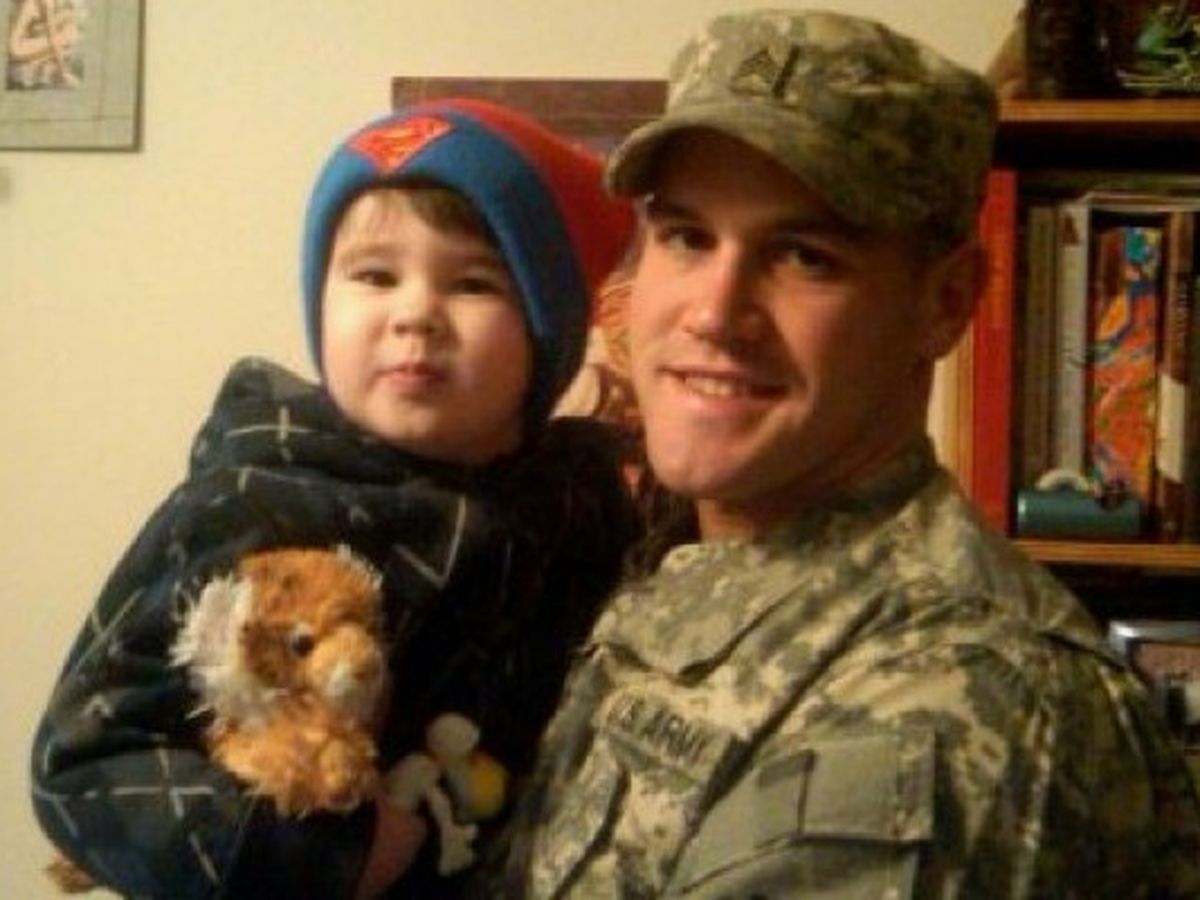- C
- M
What is PTSD? According to Mayo Clinic , "Post-traumatic stress disorder (PTSD) [is defined as] a mental health condition that's triggered by a terrifying event — either experiencing it or witnessing it. Symptoms may include flashbacks, nightmares and severe anxiety, as well as uncontrollable thoughts about the event."
PTSD manifests uniquely in each person. In the case of my husband, he has panic attacks that are triggered by gunshots, explosions (such as fireworks), or loud, sudden sounds that is followed by a mental shutdown that can last for a few hours to a few days. He avoids being in crowds, as the atmosphere for him feels very unsecured and dangerous. I am hoping that we can reduce many of his symptoms by adding a service dog specifically trained to help redirect his attention and relieve his anxiety.
While he served in the Army, my husband, Paul, was at his very best. It was his dream job. His two favorite things were shooting guns and jumping from planes. In the 82nd Airborne Division he did just that. Unfortunately, the day before Thanksgiving in 2012, he broke his leg on a nighttime jump which ultimately, after 11 years of dedication, led to his medical retirement from the US Army in August of 2014.
When Paul knew his military career was over, he began to deteriorate mentally. On occasion, he would have such vivid war flashbacks that he would be completely unreachable mentally. Without me standing by his side to calm him, he has been known to punch through wooden doors and leave fist sized dents in walls. Four tours through the Middle East have taken their toll, and they were just beginning to show.
Before his injury, Paul coped with his PTSD by talking with and being around other soldiers who had been overseas with him. Without that companionship, his retirement from the Army has been difficult for him… and for me.
Service dogs have found their way into the lives of many service members by helping relieve the symptoms of PTSD. In his visits with his therapist, he brought up the possibility of getting a service dog to help cope with his symptoms.
His therapist pointed him in the right direction and gave letters of recommendation to the Veteran's care group, but having a service dog comes with a price. One that we cannot afford without help.
With the services of Comprehensive Pet Therapy (CPT), my husband will receive a dog that is specifically trained to his needs. This includes (but is not limited to): redirecting his attention when he begins to show signs of a panic or anxiety attack, reducing his general anxiety in crowds by acting as a barrier between him and the people around him, and being a source of physical comfort when I am not nearby.
For CPT to begin their search for the right dog, we must provide $500. That's just to find the dog. After that, I don't see an end to the cost. Buying the dog, 18 months of initial training sessions, regular vet bills, feeding, insurance, and equipment (service vest, collar, bedding...)-- it all adds up.
We currently have a dog- a bullmastiff, Thor- who we would have had trained, but he is a very large dog and not suitable for many public places because of his tendency to drool. He has naturally taken on a comforting role for Paul recently, but cannot assist him in daily life outside our home. Thor's presence in our home has proved a positive influence on my husband, which is why we both feel strongly that this program will greatly enhance his daily life.
Paul has his sights set on a female Australian Cattle Dog puppy to be trained into his service dog. A puppy will bond better with him, as well as be more accepted by our current dog being young and female. Its higher energy level will allow it to keep up with my husband on a daily basis, as well as require him to get outside and be more active which should reduce the revolving depression he frequently suffers.
Paul managed to work his last year of military service around night classes for training as a massage therapist. This would be an ideal work environment for him, but he is still waiting to receive his license that was applied for in August. Because of this, we have run out of savings and are barely scraping by on his retirement pay. In the future, we will be able to afford the regular upkeep of the dog. As of right now, we eat because of the generosity of family. Beginning the path to having a trained service dog for my husband as soon as possible is still a high priority, as his stranger anxiety may prevent the flourishing of his transition to a civilian life.
This is a long term investment for the health of my husband and for the health of my family. I hope to take my family out and not have to worry that daddy might stop functioning mentally because a car backfired or someone bumped him in a crowded mall. I want to be able to send my husband out with his children and not worry about him retreating into himself because of a rowdy group in a restaurant or a high pitched scream from a child in a park.
The sooner we can raise the money needed, the sooner we can begin seeking a service dog and be on the way to a less stressful family life. All money donated will go toward the purchasing, training, and upkeep of the service dog.

